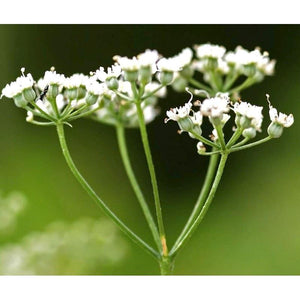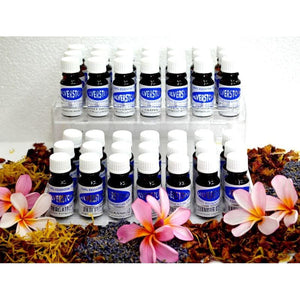Your Cart is Empty


Aniseed Essential Oil
$10.99
Shipping
Australia-wide shipping
100% Pure Aniseed (Pimpinella Anisum) Essential Oil
Aniseed Health benefits and uses:
Aniseed oil is antiseptic, aids in the relief of spasms, is calming to stomach and digestive system. It's warm spicy scent is calming and comforting to the mind. It may be helpful for introverted, fearful and melancholic persons who are likely to withdraw
Aniseeds were highly prized in ancient Egypt, Greece and Rome. The warm spicy-sweet liquorice-like smelling seeds were used in Bread making and liqueurs for the calming effect on the digestive tract.
In Tibetan medicine a blend of Aniseed oil and nutmeg oil is used in a massage oil to treat anxiety, depression and other neurotic conditions.
2-3 drops of Aniseed oil in a vaporizer clear the head and strengthen the nerves.
Up to 5 drops added to a bath helps relief nervous headaches, anxiety, stress, insomnia and general exhaustion.
Aniseed oil may be used to aid digestive problems such as dyspepsia, colic and wind. To make an effective soothing massage oil to relieve digestive problems blend with peppermint and nutmeg.
Aniseed oil used in a massage oil and rubbed into the chest or as steam inhalation with 5 drops Aniseed oil to 1 litre of steaming water acts as a good expectorant. It loosens up and liquefies mucous and helps to relief congested head colds, sinusitis, bronchitis and dry or bronchial coughs. You can also dab a little Aniseed oil on a handkerchief and hold it to your nose to reap it's healing benefit. If coughing persists consult a health care professional.
Because one of Aniseed oil major constituents has estrogen-like effects it is recommended to avoid Aniseed oil in pregnancy, breastfeeding and if you suffer estrogen-dependant cancers or endometriosis until conclusive safety data are available.
Disclaimer: The information contained on this website is for educational purposes only. It is not provided to diagnose, prescribe or treat any condition of the body. The information on this website should not be used as a substitute for medical counselling with a health professional.



